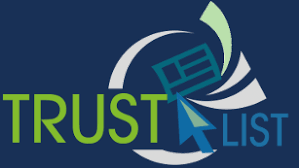
In the fast-paced and highly regulated aerospace industry, maintaining a robust supply chain is paramount. Aerospace Supply Chain Management involves complex coordination among various suppliers, strict adherence to regulatory standards, and the integration of sustainability practices. This blog will explore the compliance and regulatory challenges in aerospace supply chain management and discuss how leveraging advanced software solutions can address these challenges.
The aerospace supply chain is intricate, involving multiple tiers of suppliers, each responsible for providing specific components or services. Effective aerospace supply chain management ensures that all parts meet stringent quality and safety standards.
Regulations such as the Federal Aviation Administration (FAA) standards, International Traffic in Arms Regulations (ITAR), and Export Administration Regulations (EAR) play a crucial role in aerospace supply chain management. Compliance with these regulations is essential to avoid penalties and ensure the safety and reliability of aerospace products.
Maintaining compliance with numerous regulations can be daunting. Aerospace companies must continuously monitor changes in regulatory requirements and adapt their processes accordingly.
Ensuring proper documentation and traceability throughout the supply chain is critical. Aerospace supply chain management requires meticulous record-keeping to provide evidence of compliance during audits and inspections.
Aerospace companies often work with suppliers across different regions, each subject to varying regulatory standards. Ensuring that all suppliers comply with relevant regulations is a significant challenge in aerospace supply chain management.
The regulatory environment in the aerospace industry is continuously evolving. Staying updated with new regulations and ensuring compliance across the entire supply chain is a major challenge.
Aerospace companies often source components internationally. Navigating cross-border compliance involves understanding and adhering to the regulatory requirements of multiple countries, adding complexity to aerospace supply chain management.
With the growing dependence on digital technologies, cybersecurity has emerged as a major concern. Ensuring the security of sensitive data and protecting against cyber threats are vital aspects of aerospace supply chain management.
Effective Aerospace Risk Management involves identifying potential risks within the supply chain and implementing strategies to mitigate them. This includes assessing supplier capabilities, evaluating geopolitical risks, and preparing for disruptions.
Advanced risk management tools can help aerospace companies analyze and quantify risks, enabling them to make informed decisions and enhance the resilience of their supply chains.
By proactively managing risks, aerospace companies can enhance the resilience of their supply chains, ensuring continuity of operations even in the face of unforeseen challenges.
Sustainability is becoming increasingly important in aerospace supply chain management. Companies are implementing sustainable practices to minimize their environmental impact and comply with regulatory requirements.
Adhering to environmental regulations is a key aspect of Aerospace Sustainability. Companies must ensure that their operations and supply chains comply with environmental standards to avoid penalties and promote sustainability.
Advanced technologies such as blockchain, IoT, and AI can help aerospace companies enhance sustainability by improving transparency, optimizing resource utilization, and reducing waste.
While both aerospace and automotive supply chains involve complex networks of suppliers, the regulatory and compliance requirements in the aerospace industry are more stringent.
Collaboration between aerospace and automotive supply chain management professionals can lead to the development of innovative solutions and best practices for managing complex supply chains.
Aerospace companies can learn valuable lessons from the automotive supply chain management practices, such as lean manufacturing and just-in-time inventory management, to enhance efficiency and compliance.
Compliance management software can help aerospace companies streamline their compliance processes, ensuring adherence to regulatory standards and reducing the risk of non-compliance.
Automated compliance solutions can improve efficiency, reduce manual errors, and provide real-time visibility into compliance status across the supply chain.
Advanced software solutions can integrate various aspects of aerospace supply chain management, from risk assessment to sustainability tracking, providing a holistic approach to managing compliance and regulatory challenges.
ComplianceQuest Management Software offers a comprehensive solution for aerospace supply chain management, addressing compliance, risk management, and sustainability challenges. By leveraging this advanced software, aerospace companies can ensure regulatory compliance, enhance supply chain resilience, and promote sustainability.
ComplianceQuest Management Software provides features such as real-time compliance monitoring, automated risk assessment, and sustainability tracking, making it an essential tool for aerospace supply chain management in 2024.
In conclusion, aerospace supply chain management involves navigating complex regulatory frameworks, ensuring supplier compliance, and integrating sustainability practices. By leveraging advanced software solutions like ComplianceQuest Management Software, aerospace companies can address these challenges effectively, ensuring compliance, enhancing resilience, and promoting sustainability in their supply chains. Investing in ComplianceQuest Management Software is essential for aerospace companies to thrive in 2024 and beyond.